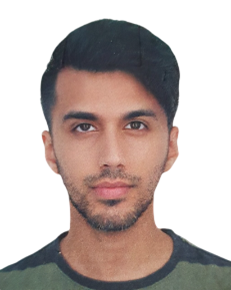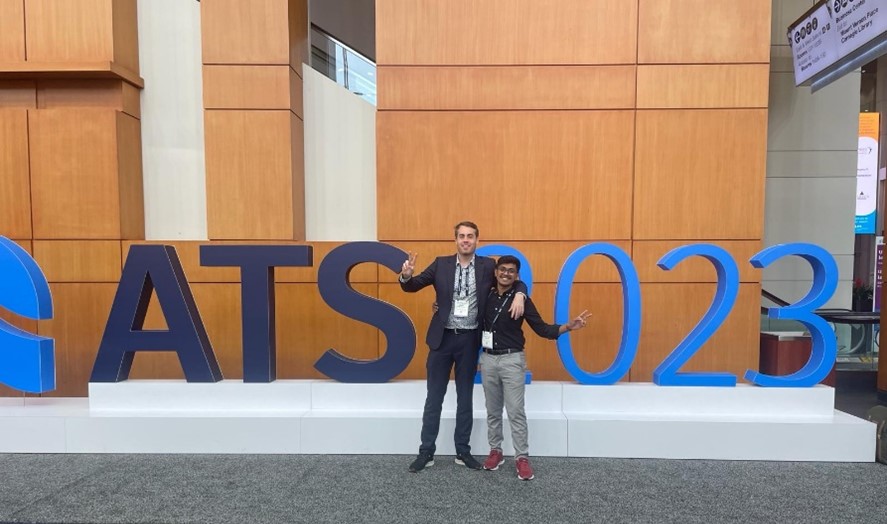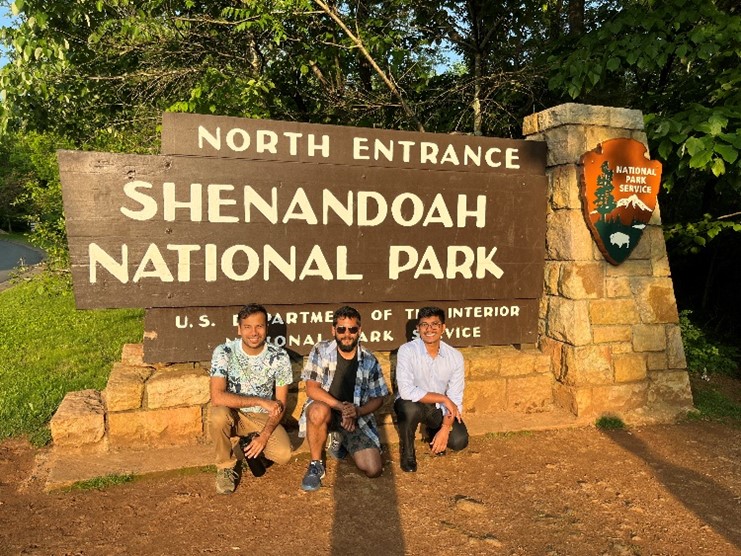Student's Take: The PhD Journey: Overcoming Challenges
 | By Sanjay Devaraja, Editor, The LKCMedicine |
LKCMedicine’s PhD programme is designed to nurture the next generation of medical researchers and innovators, preparing candidates to contribute significantly to healthcare science, medical innovation, and translational research. The programme focuses on training scientists who can bridge the gap between laboratory research and clinical application, a key tenet of the School’s translational research approach.
Attending conferences is a crucial aspect of the PhD journey. It enhances professional development, fosters intellectual growth, and provides an essential platform for networking and collaboration. From receiving feedback on research to learning about the latest developments in the field, conferences offer myriad benefits that can significantly shape a PhD student’s academic and career trajectory. For these reasons, PhD students at LKCMedicine are strongly encouraged to attend conferences regularly throughout their course.
Jayanth Kumar Narayana is a graduate from the LKCMedicine PhD programme under the tutelage of Associate Professor Sanjay Haresh Chotirmall. He cleared his PhD Defense earlier this year and has embarked on his postdoctoral stint with Prof Chotirmail, continuing and building on existing projects. He shares two of his most recent milestones where he hosted an international workshop and gave an oral presentation at an international conference, as well as the challenges and how he overcame them.

Could you briefly describe the two conferences you attended in America and the main focus or theme of each event?
I had the opportunity to attend two conferences – the ATS (American Thoracic Society) International conference in Washington D.C and SIAM (Society of Industrial and Applied Mathematics) Dynamical Systems conference in Portland. The ATS conference was a very large gathering of clinicians and scientists working on respiratory sciences. The conference was primarily centered around the latest advancements and research in respiratory health. My primary focus at ATS was to understand the multi-faceted field of respiratory sciences and the current mathematical/analytical techniques that were applied to address challenges in respiratory medicine. On the other hand, the SIAM Dynamical Systems conference was a multidisciplinary gathering of applied mathematicians, applying various mathematical tools in diverse settings including life sciences. Being a mathematician with a keen interest in translational clinical sciences, these experiences enhanced my understanding and offered valuable insights on how mathematical techniques could better be applied to address challenges in respiratory medicine.
What were the key findings or highlights from your talk and explain the significance of your research in a way that is accessible to a broader audience?

Having hosted a workshop, what inspired you to organise/ideate the theme of your workshop, and what were the main takeaways or skills that you hoped your fellow scientists would gain from it?
I was invited to the lung microbiome workshop to present a session along with other world leaders in respiratory microbiome. I chose to talk on the topic ‘An Introduction to Microbiome Analytics for Integrative Microbiome Studies’. Microbiome datasets pose distinctive challenges due to their varied mathematical properties and hence traditional statistical methods are not applicable. I aspired for participants to appreciate these challenges and to cultivate a deeper understanding of microbiome datasets for better interpretation and analysis.
Many of our readers are aspiring researchers and fellow graduate students. Can you share some insights or tips about how you prepared for your presentation and workshop, including any challenges you faced and how you overcame them?
In preparing for presentations and workshops, I feel that the most important thing is to study and tailor the presentation to the audience. Putting myself in their shoes allowed me to understand what would be most interesting and useful for the audience to take away. Secondly, practice proved indispensable; multiple rehearsals not only boosted my comfort with the material but also facilitated refining the delivery. Seeking feedback from friends and mentors and being open to change enhanced the overall quality of my presentations.
International experiences often lead to personal growth and valuable lessons. What were the most memorable moments from these conferences that had a significant impact on you, either professionally or personally?
My memorable moments from these conferences included meeting world experts in the field, reconnecting with old friends and making new friends. One particularly impactful experience was witnessing people engage with and appreciate my research. The motivation derived from seeing others read and recognise my work, coupled with personal compliments, was very gratifying.

How do you envision the experiences in your PhD journey to contribute to your academic and professional journey in the long term? What advice would you offer to other graduate students looking to make the most of their opportunities?
Attending international conferences and making connections is greatly useful not only in academic journey but also in other fields. The PhD journey, beyond its scientific aspects, offers many things such as writing, presenting, organising and communication skills. My advice to fellow students would be to maintain an open mindset and recognise the multifaceted nature of PhD and embracing challenges as growth opportunities.
Are there any upcoming projects, conferences, or experiences on the horizon?
Looking ahead, I'm enthusiastic about an upcoming project focusing on the pulmonary microbiome across various clinical trials of chronic respiratory diseases. The central objective is to assess whether the pulmonary microbiome plays a significant role in influencing responses to treatment. I believe this research has the potential to shed new light on the usefulness of pulmonary microbiome for therapeutic interventions and contribute valuable insights to the field. I'm eager to share the outcomes and engage with the scientific community to exchange ideas and perspectives.


